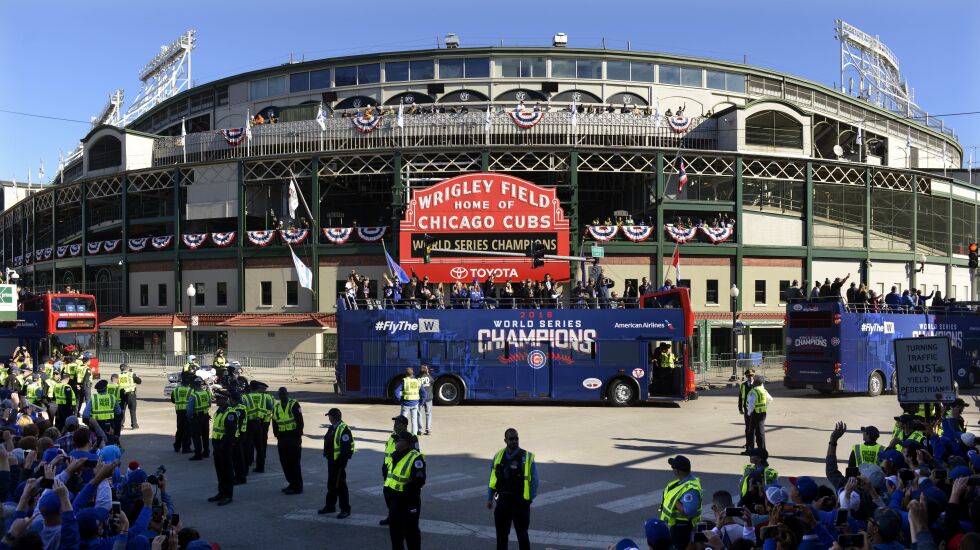
The U.S. Attorney’s office sued the Chicago Cubs on Thursday over the team’s recent yearslong renovation of Wrigley Field, aiming to force the North Siders to remedy alleged violations of the Americans with Disabilities Act.
U.S. Attorney John Lausch’s office says the Cubs’ 1060 Project “enhanced the gameday experience for many fans,” but “the same cannot be said for fans with disabilities.”
Rather, the feds say the Cubs “removed the best wheelchair seating in the stadium,” isolated certain wheelchair users and confined them “to the worst seats” in the bleachers and grandstand, and left some struggling to see around fans on their feet.
The feds also point in their lawsuit to other problems — including counter surfaces and restroom paper-towel dispensers that are allegedly too high for wheelchair users.
The Cubs insisted Thursday that “the Friendly Confines today is more welcoming than ever to fans with accessibility needs.” And in a written statement, the team said it is “disappointed” in the lawsuit.
“The renovation of Wrigley Field greatly increased accessibility of the ballpark and was completed in accordance with applicable law and historic preservation standards consistent with the ballpark’s designation as a national and City of Chicago landmark,” the team said.
Though the team said it hoped the lawsuit could be resolved “amicably,” it said it would “defend Wrigley Field and our position it meets accessibility requirements for fans.”
The feds’ lawsuit seeks injunctive and monetary relief.
The investigation of Wrigley’s ADA compliance by Lausch’s office became public in December 2019 when a lawyer for the team filed a letter as part of a lawsuit brought by David Felimon Cerda, a Cubs fan with Duchenne muscular dystrophy who uses a wheelchair.
His attorney and father, David Alberto Cerda, told the Chicago Sun-Times on Thursday that the Wrigley renovation did away with “excellent” accessible seats behind home plate and elsewhere. He said those seats were replaced with luxury or premium seating areas.
“The whole enterprise with regard to ADA seating was pure greed over the rights of ADA patrons,” David Alberto Cerda said.
Despite their lawsuit, he said his son remains a Cubs fan and attended a game Tuesday.
The Cubs said Thursday the team has “fully cooperated with every inquiry” amid the federal investigation and “made several offers to voluntarily further enhance accessible features of the ballpark.”
The lawsuit from Lausch’s office notes that Wrigley opened in 1914, has been home to the Cubs since 1916 and “is the second-oldest ballpark in the major leagues (behind Fenway Park in Boston).” It also says the renovation of Wrigley, known as the 1060 Project, was subject to the ADA.
It points to problems in the stadium’s bleachers, lower grandstand and upper deck.
In the bleachers, the feds complain that many of the wheelchair seats “are located in the last row” of newly constructed porches.
“Wrigley Field previously had 15 general admission wheelchair seats with excellent, unobstructed views over standing spectators on the main bleacher concourse in right field, but the Cubs eliminated those wheelchair seats during the 1060 Project,” the feds wrote.
The Cubs converted that space into the Budweiser Patio, a group-seating area available to wheelchair users if they are part of a group that rents the space, which is typically more expensive per person, according to the lawsuit.
Meanwhile, in the lower grandstands, the feds wrote that wheelchair users do not have access to club areas. And in the upper deck, they said “most if not all of the existing or planned wheelchair seats lack adequate sightlines over standing spectators.”







